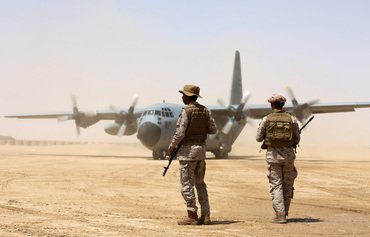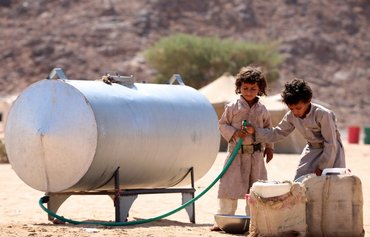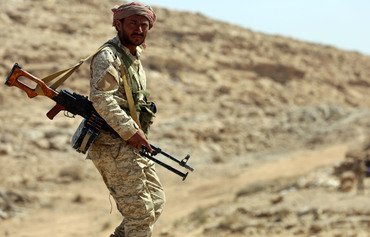Yemeni forces have pledged to continue military operations in al-Jawf province until they have wrested all districts from the Iran-backed Houthis (Ansarallah).
The announcement came after Yemeni forces last week retook al-Khanjar camp and vast areas in Khub district, killing and capturing dozens of militants.
Security forces staged several successful ambushes after luring the Houthis to locations west of al-Yatma, army spokesman Brig. Gen. Abdo Abdullah Majali said March 10th.
They also liberated new areas of al-Jawf, he said, noting that military operations will continue until the Houthis have been ousted from the entire province.
The armed forces carried out a massive offensive in al-Mahashmah area and sites close to al-Jawf and al-Salila, inflicting heavy losses in lives and equipment on the Houthis and capturing a number of fighters, Majali said.
The Yemeni army on March 5th announced the launch of an offensive to retake and liberate Houthi-controlled districts in al-Jawf after the Houthis captured the provincial capital of al-Hazm on March 1st.
Tribes support the army
The army issued "a general alarm to retake al-Jawf directorates" under the command of al-Jawf governor Maj. Gen. Amin al-Akimi, said spokesman Col. Rabei al-Qurashi.
"The army moved from a defensive mode to an offensive mode to recapture [Houthi-controlled] areas, some of which the Houthis have controlled since the outbreak of the war and others they captured a year ago," he told Al-Mashareq.
"The Dahm tribes supported the army and carried out a flanking manoeuvre around the Houthis' positions and captured 50 Houthi militiamen," he said.
The army was able to secure al-Yatma road, linking al-Jawf to Marib province, al-Qurashi said, explaining that when the Houthis controlled the road they were able to disrupt the army's supply operation.
The army also recaptured al-Salila, and the Houthis are retreating from that area, having lost many of their fighters in these clashes, he said.
Al-Qurashi highlighted "the active role of [Arab] coalition aircraft, which carried out precise airstrikes against the Houthis in al-Jawf and had an impact on the recapture and liberation of some areas".
"The liberation and recapture of al-Jawf districts from Houthi control must continue to deprive the Houthis of the opportunity to lay mines," political analyst Faisal Ahmed told Al-Mashareq.
This would complicate the army's liberation operation, he said.
Push to recapture al-Jawf
"The most important move the Yemeni army made was the flanking manoeuvre it executed against Houthi elements in the areas now controlled by the army, as it put the Houthis on the defensive," Ahmed said.
"This underscores the importance of recapturing and liberating al-Jawf districts from the Houthis on account of their strategic location, which impacts both Marib province and Saudi Arabia," he said, noting that al-Jawf borders the kingdom.
The air support the Arab coalition provided to Yemeni forces in al-Jawf "was driven by Saudi Arabia's desire to protect its economic facilities from potential attacks by the Houthis through al-Jawf", he said.
Saudi Arabia does not want Iran or its proxies to use Yemeni territory to threaten its security or global trade traffic through the Red Sea, Abaad Studies and Research Centre director Abdulsalam Mohammed told Al-Mashareq.
The kingdom is especially concerned "that the Houthis have gotten close to Saudi Arabia through al-Jawf province", he said, noting that it "cannot be sure that the Houthis would distance themselves from the Iranian regime".
According to a report produced by the Abaad Centre, Saudi Arabia sees a need for stability in Yemen "through a Yemeni government that manages its institutions and protects its borders and territory".

![Pro-government forces sit in the back of a truck as they patrol an area of Shabwa province on December 21st, 2015. [Saleh al-Obeidi/AFP]](/cnmi_am/images/2020/03/18/23029-Yemen-fighters-Shabwa-600_384.jpg)







Don't believe the news of hypocrites who are enemies of God and mercenaries of Al Saud.
Reply1 Comment(s)